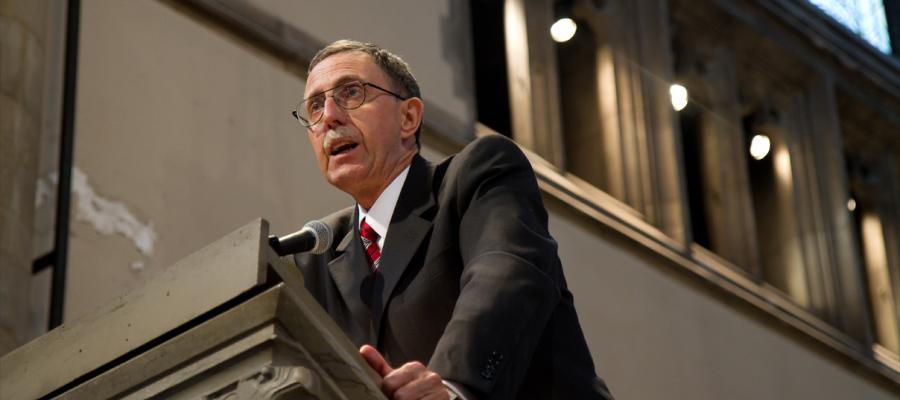A petition is circulating among the faculty of the University of Chicago to “urge the University to divest from the fossil fuel industry.” As of now, it has over 109 signatures from professors across the University. This is a small part of a larger campaign spearheaded by Students for a Just and Sustainable Future (SJSF) to get universities out of the business of profiting from fossil fuels through divestment. The goal of these efforts is to put pressure on the stock price of fossil fuel companies and therefore force the firms to change their behavior.
No matter what your views are on the climate change debate, no rational person should support divestment. There is no evidence to demonstrate it will do anything to help the climate, and it will ultimately cost the University hundreds of millions of dollars—Swarthmore estimates it would cost their endowment $200 million over 10 years to divest. This is money that could be spent on research, scholarships, or perhaps best of all for the cause, reducing the University’s carbon footprint.
Here is why divestment won’t work: A central tenet of corporate finance is that demand curves for individual stocks are approximately horizontal. For most things we buy, demand curves slope downward. This means if we demand less, less will be supplied and at lower prices, but stocks are not like other products. The stock price is merely an estimate of the cash flows that ownership of the stock will produce in the future, and therefore is not determined by a “demand” for the stock. Unless the sale of stock conveys information to the market about the future cash flows, no individual sale can move the price.
If the Office of Investments, which manages the University’s nearly $9 billion endowment, sells all of the shares it owns in ExxonMobil, the stock price of ExxonMobil should not change. Others will stand ready to buy the shares at the current market price, meaning supply and demand aren’t helpful ways to think about stock prices. Unless the money that ExxonMobil is expected to earn in the future goes down, the stock price will stay the same. And nothing about the decision of a few university endowments to sell the shares provides the market information about how much oil or coal will be sold at what prices tomorrow. Undervalued shares in the near term will be bought up until their price more or less reflects the expected gain from holding those shares. In an extreme case, ExxonMobil could simply go private, removing any need to rely on public markets for funding or valuation.
The fact that the stock price of divested companies will not fall means that these firms will not experience a higher cost of capital, and therefore nothing about their capital raising activities, project choice, or other decisions will be affected by divestment. Managers with stock-based compensation won’t be affected either nor will other shareholders of these firms. In short, the economic impact of the SJSF demands on the targets of their ire would be nearly zero.
Making matters worse, universities—or rather their employees and students—would bear large costs to achieve no benefits. The endowments already have to spend money defending their investment decisions, and, if it comes to it, will spend more selling shares and accepting lower returns than would otherwise be available. Taking profitable investments off the table also means lower returns for endowments. This means taking money out of the universities’ pockets and putting it into the hands of other people, all without actually imposing any cost on the alleged bad actors.
SJSF and others might argue that their campaign is about raising public awareness of the problem of carbon emissions and fossil fuels. If this is their goal, there are far better ways to proceed—for instance, getting universities to use energy more efficiently, to source their energy from more renewable sources, or to change students’ energy usage. Not only would these strategies potentially reduce the use of fossil fuels, but they would also not put the costs onto others—namely future students who will pay more to attend colleges made poorer by bad investment decisions of their schools.
Perhaps the real lesson of the divestment wave building on American campuses today is that colleges should devote more time to teaching economics and elementary finance to their students. Armed with some basics, these well-meaning students would be able to make a much bigger impact on our world.
– M. Todd Henderson, Professor of Law & Mark Claster Mamolen Research Scholar, University of Chicago Law School







